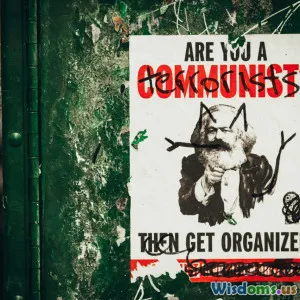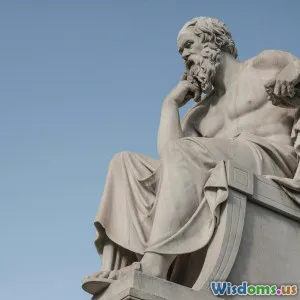What If Julius Caesar Had Not Crossed the Rubicon
9 min read Explore the alternate history and profound impact if Julius Caesar had never crossed the Rubicon in 49 BCE. (0 Reviews)What If Julius Caesar Had Not Crossed the Rubicon?
Introduction: A Decision that Echoed Through History
"Alea iacta est" — "The die is cast." This famous phrase marks one of the most momentous decisions in classical history: Julius Caesar’s crossing of the Rubicon River in 49 BCE. By taking this step, Caesar irrevocably challenged the Roman Senate and plunged the republic into civil war. The consequences were dramatic, leading to the fall of the Roman Republic and the dawn of the Roman Empire. But what if he had refrained? What if Caesar had chosen diplomacy, delay, or retreat over war? In this article, we explore the possibilities, consequences, and lasting impacts of a world where Caesar never crossed the Rubicon.
The Historical Context: Understanding the Gravity of Caesar’s Move
The Rubicon was a small river in northeastern Italy, but symbolically it represented the legal boundary between the Roman province of Cisalpine Gaul, under Caesar’s control, and Italy proper, governed directly by Rome’s Senate. Roman law strictly forbade a general from leading troops into Italy to protect the republic from military coups.
By crossing with his legion, Caesar committed an act of war. This forced the Senate, led by Pompey the Great and other political rivals, into declaring Caesar an enemy of the state. This civil war reshaped Rome’s political landscape, ending centuries of republican governance.
Alternative Scenario: Caesar Avoids Crossing the Rubicon
1. Continued Political Maneuvering
If Caesar had not crossed the Rubicon, he might have continued political negotiations with the Senate. Given his immense popularity among the people and the army, alongside his reforms, a political settlement might have been possible. Some suggest Caesar could have secured a legal extension of his command, or even a peaceful transition to a consulship or another leadership role.
Yet, tensions between aristocratic conservatives (the Optimates) and populist reformers (the Popularis) ran deep. Caesar’s growing power unsettled many senators, particularly Pompey, who once allied with Caesar but grew wary of his ambition. A peaceful solution would require compromises that neither side fully trusted.
2. The Role of Pompey and the Senate
Without immediate military threat, Pompey and the Senate might have temporarily held the upper hand. Pompey’s forces dominated Rome and Italy, and he controlled the Senate apparatus. However, Pompey’s military campaigns in the East to secure Rome’s eastern provinces after his victories against Mithridates kept him somewhat distant and potentially distracted.
A prolonged political standoff could have led to further erosion of internal trust and fragmented alliances. This political paralysis might have prolonged the Republic’s decline or shifted power balances differently.
3. Impact on the Roman Republic’s Decline
The Republic was already fragile — beset by social inequality, economic strains, and power struggles among elites. Caesar’s civil war accelerated its collapse, facilitating the transition from republican to imperial rule.
If Caesar refrained from crossing the Rubicon, the Republic might have staggered along with reforms, but likely still imploded eventually under the weight of entrenched elite conflicts and systemic challenges. Some historians argue this moment was inevitable, driven by structural failings including corruption, class division, and oversize territories.
4. Possible Emergence of a Different Leader or Outcome
Caesar’s opponents like Pompey or the Senate might have attempted reforms or a shift in governance themselves. Alternatively, other generals or politicians might have emerged to challenge the status quo — possibly inciting different conflicts or civil wars later.
The delayed conflict could have resulted in a more fragmented political landscape, more localized power centers, or even a slower pace of centralization.
Long-Term Consequences: Rome and the World Without Caesar’s Gamble
1. No Immediate End to the Republic
The Republic might have endured two more decades or even several more decades before transformation into an empire. This slower republican evolution could have influenced the development of Roman law, political institutions, and territorial governance.
2. Different Cultural and Political Legacy
Caesar’s rule shaped the imperial court system, legal reforms, and literature (Caesar’s Commentaries remain fundamental texts). Without his concentration of power, the Roman cultural landscape might have looked very different — potentially less centralized and more fragmented.
3. Delayed Roman Imperial Expansion and Influence
Caesar’s assassination in 44 BCE triggered further instability that led to the rise of Augustus, Rome’s first emperor. Without Caesar’s civil war, Augustus’s ascendency might never have occurred, or not in the form we know today.
A later imperial expansion could have delayed critical developments, including Roman law’s spread, engineering feats, and the establishment of Pax Romana.
4. Impact on Western Civilization and Modern Governance
Caesar’s crossing of the Rubicon is often cited as a turning point toward autocratic rule reflecting on the power and limits of democracy. Without this event, the tales of republic-to-empire transformation as a political catalyst might be heavily reimagined, influencing modern political philosophy and conceptions of democracy, power, and revolution.
Real-World Insight: Lessons from the Rubicon Moment for Today
Caesar’s decision is a seminal example of choosing decisive action despite enormous risk. It highlights leadership tensions between legality and pragmatism, personal ambition and public good, war and peace. Today, leaders around the world grapple with similarly fraught choices — balancing negotiation with action, stability with reform.
The metaphorical Rubicon continues to remind us that some moments defy reversal and bear consequences far beyond the individuals involved.
Conclusion: The Ripple Effect of Historical Decisions
Had Julius Caesar not crossed the Rubicon, the history of Rome and the wider world might look vastly different, though not necessarily more stable or more republican. The civil war that followed was destructive but also foundational in shaping the early imperial system that dominated Europe and influenced civilizations for millennia.
The alternative path involves complex political maneuvering, possible prolonged instability, and delayed but perhaps inevitable systemic change. This hypothetical scenario challenges us to contemplate how individual decisions catalyze monumental change — and how history itself is a fragile confluence of chance, choice, and consequence.
Ultimately, the crossing of the Rubicon remains a powerful symbol of fate’s pivot: that one step can change everything.
Rate the Post
User Reviews
Popular Posts





















